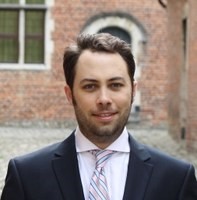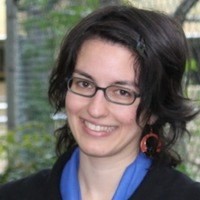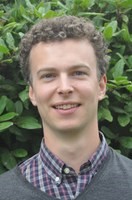Professor Sarah Coakley, the former Norris-Hulse Professor of Divinity, was awarded in 2013 a major grant by the Templeton World Charity Foundation (nearly £1 million) for a ground-breaking interdisciplinary research project.
This research project was designed to re-imagine the way that scholars of "science and religion" are formed and trained, and thereby to create a new paradigm for debate between philosophy, theology and the natural sciences. We believe that our goals were very effectively achieved, and that we began to transform the divide in the University between the arts and sciences. The work our post-doctoral scholars produced and will continue to produce is witness to this success. Sarah Coakley
The Templeton World Charity Fellowships in Theology, Philosophy of Religion, and the Sciences project first involved a preliminary year of interdisciplinary background research and discussion between the Faculty of Divinity, the Faculty of Philosophy, the Department of the History and Philosophy of Sciences, and several leading Cambridge scientific research clusters, after which three Fellows were appointed for three years. Extended for one further year on account of its success and productivity, the grant came to an end in August 2018, with all the Fellows by that time hired to positions in other universities.
Background and Aim of the Project
The project addressed what Coakley saw as a ‘serious blockage’ to in-depth interchange between theology or philosophy of religion and the natural sciences, namely the lack of adequate knowledge of actual scientific practice on the part of theologians and philosophers of religion who wish to engage in the ‘science and religion’ debates. The project also insisted on adequate training in the History and Philosophy of Science, in order to probe the underlying philosophical commitments of contemporary scientific practice.
Following the year of preparation and international recruitment, three highly-skilled postdoctoral Fellows were appointed (Dr Daniel de Haan, Dr Natalja Deng and Dr Peter Woodford: for more information on them individually, see below), all of whom possessed the appropriate theological and philosophical backgrounds at doctoral level, and clear indications of previous training or promise in scientific investigation.
Outcomes
Dr Daniel de Haan, Dr Natalja Deng and Dr Peter Woodford were embedded for three years in three different scientific research clusters in Cambridge working at the cutting edge of their fields, and were provided with substantial mentoring from both the science and the theology/philosophy sides of the relevant debates in their areas. By the end of their tenure they had contributed significantly to interdisciplinary discussion through various publications (more than 30 articles and several books or books in preparation). They also organized three international symposia which brought together leading experts in Zoology, Neuroscience, Physics, Philosophy, and Theology, each symposium relating directly to the research project they personally undertook. Links to film clips from these symposia can be found under the materials on each Fellow, below.
Not only the international academic community, but also the wider public became interested in this project, specifically in the method of integrating philosophers and theologians into scientific research groups. For instance, during the Bishop of Huntingdon’s popular event Getting to Grips with Big Questions About Science and Religion (Ely, 15 October 2016, chaired by Prof Coakley), Dr Deng discussed whether cosmological fine-tuning could constitute an argument for God’s existence, Dr De Haan assessed whether neuroscience had disproved free will, and Dr Woodford inquired whether evolutionary cooperation could serve as a foundation of ethics.
The Post-doctoral Fellows
Daniel De Haan

Daniel conducted research in the neuroscience strand of the project, based in Dr Lisa Saksida’s Translational Cognitive Neuroscience Laboratory within the Department of Experimental Psychology. Currently, Daniel is a Research Fellow at the Ian Ramsey Centre for Science and Religion (IRC), University of Oxford.
This is how Daniel describes his work on the project: “My enquiries orbited the basic questions: who are we? and what are we? Being embedded in the Department of Psychology opened up new horizons for reflecting on the ways scientific research in cognitive neuroscience, comparative animal psychology, and developmental psychology shed light on theological and philosophical questions about human persons. Among the many things I learned during my postdoctoral research, two insights standout. First, my interdisciplinary experiences taught me how important it is to be more reflective on the range of issues—existential, practical, and theoretical – that inform the way diverse theoretical enquiries agree and disagree on a host of different issues that effect, for good or ill, their own more specialized enquiries. Second, I learned from more developmental, ecological, and anthropological approaches to scientific, philosophical, and theological research, how seriously impoverished were my initial enquiries into human persons. What was required were questions that included rather than excluded or occluded what we are as developing and dependent rational animals.”
Daniel’s symposium Probing Practices of Psychological Attribution (October 2016) created a profound interdisciplinary discussion between philosophers, developmental psychologists, ethologists, comparative cognition theorists and translational cognitive neuroscientists, who critically reflected upon methodological and conceptual issues raised by these distinct practices of ascribing psychological behaviour and capacities to humans and other animals. For example, Prof Julian Hughes (University of Bristol) spoke about “Malignant positioning in dementia”.
A selection of Dr De Haan’s publications:
“Hylomorphism and the New Mechanist Philosophy in Biology, Neuroscience, and Psychology” in Neo-Aristotelian Perspectives on Contemporary Science, ed. William M.R. Simpson, Robert C. Koons, Nicholas J. Teh (Routledge, 2017) https://www.routledge.com/Neo-Aristotelian-Perspectives-on-Contemporary-...
“Hylomorphic Animalism, Emergentism, and the Challenge of the New Mechanist Philosophy of Neuroscience” Scientia et Fides, 2017 http://dx.doi.org/10.12775/SetF.2017.025 “The Interaction of Noetic and Psychosomatic Operations in a Thomist Hylomorphic Anthropology” Scientia et Fides, 2018 http://dx.doi.org/10.12775/SetF.2018.010
Natalja Deng

Natalja worked in the cosmology strand of the project and cooperated primarily with the Philosophy Faculty, but also with senior and post-doctoral researchers from Physics and Philosophy of Physics. Natalja currently is Assistant Professor at Yonsei University, South Korea.
She summarizes her research thus: “Physics tells us things about the nature of space and time, and metaphysics helps us interpret these findings. Any other discipline that says something about the world, and about what sorts of beings exist in it, has to take these findings into account. Theology is no exception. If there is a Creator, what is (s)he like, does (s)he experience time and space as we do, or if not, how should we conceive of his/her relation to space and time? Can we even make sense of these ideas? How do theology and science relate to one another – can there be empirical (dis)confirmation of religion by science? Are there promising arguments for theism that start with findings in physics (e.g. modern cosmology and particle physics)? These are the sorts of questions relevant to the project. I was exceptionally fortunate to be able to listen to wonderful philosophers of science and scientists, as well as to theologians. The scientists had varying attitudes towards religion, and the theologians had varying degrees of interest in science. So there were many thought provoking encounters, and I was able to learn a great deal. One thing that became increasingly evident was that in the background of all of these questions are some more basic decisions about what religion is, and whether and in what sense it aims to describe the world. These in turn are multi-faceted and fascinating issues, to which many different discussions in contemporary philosophy of religion are potentially relevant.
Natalja’s symposium Time and Religion (December 2016) caused a lively in-depth interdisciplinary discussion about divine (a)temporality among experts on different aspects of the philosophy of religion and the philosophy of time, including the philosophy of physics. For instance, Prof Brian Leftow (Oxford University) talked about “Presentism and Atemporality”.
A selection of Dr Deng’s publications:
God and Time (CUP Elements series). Forthcoming. “Eternity in Christian Thought” (https://plato.stanford.edu/entries/eternity/).
“Naturalistic religious practice and the meaning of belief” (forthcoming)
“On mystery, timelesness, and being apersonal” (forthcoming)
Peter Woodford

Peter worked in the evolutionary science strand of the project, based in the Large Animal Research Group led by Prof Tim Clutton-Brock within the Department of Zoology. Peter currently works as , USA: Dona and Marshall Robinson Assistant Professor of Religion, Science and Philosophy at Union College, Schenectady, NY
Peter describes his experience thus: “During my tenure as a Templeton postdoctoral fellow, I worked with scientists to think about the issues that research into the evolution of cooperation raises for philosophical and theological reflection on the sources of morality, the place of rational agency in nature, and the compatibility between science and religion. What I found through my tenure is that the answers to many of these philosophical and theological questions are often underdetermined by discussions taking place in the contemporary sciences, in the sense that distinct and incompatible philosophical and theological views might equally make the case that they are compatible with what we understand about the evolution of cooperation. Indeed, vying positions are often held by scientists themselves on these matters. Nonetheless, I found that there are many suggestive results from the sciences that can and ought to be applied to address such “ultimate” questions, and that there is significant, often under-explored, space for mutual dialogue between these fields to debate the viability of various answers to them. In my publications, I have tried to explore some of this space and to address some of the challenges that an evolutionary perspective on cooperation poses for philosophy and religion.”
Peter’s symposium Cooperation from Cells To Humans: Theoretical, Empirical, and Philosophical Perspectives on Inclusive Fitness (May 2016) stirred a vivid discussion. The talks covered a range of issues from how we think of biological causation, to the nature and generality of evolutionary explanations, to questions about how to think about different “levels” and “systems” in which cooperation can arise, to questions of the impact of evolutionary theory for understanding human cooperation and ethics. See for instance the talk “‘Testing’ Hamilton’s Rule” given by Prof Benjamin Allen (Emmanuel College, Boston, MA).
A selection of Dr Woodford’s publications:
The Moral Meaning of Nature: Nietzsche’s Darwinian Religion and its Critics. Chicago: University of Chicago Press, 2018.
“Neo-Darwinism and Neo-Aristotelianism: How to Talk about Natural Purpose,” History and Philosophy of the Life Sciences 38, no. 4 (2016): 1-23.
“The Evolution of Altruism and its Significance for Environmental Ethics,” Accepted/in press at Environmental Ethics.
“Biological Altruism, Biological Agency, and the Identification of Social Behaviors,” Accepted for publication at Biology and Philosophy
